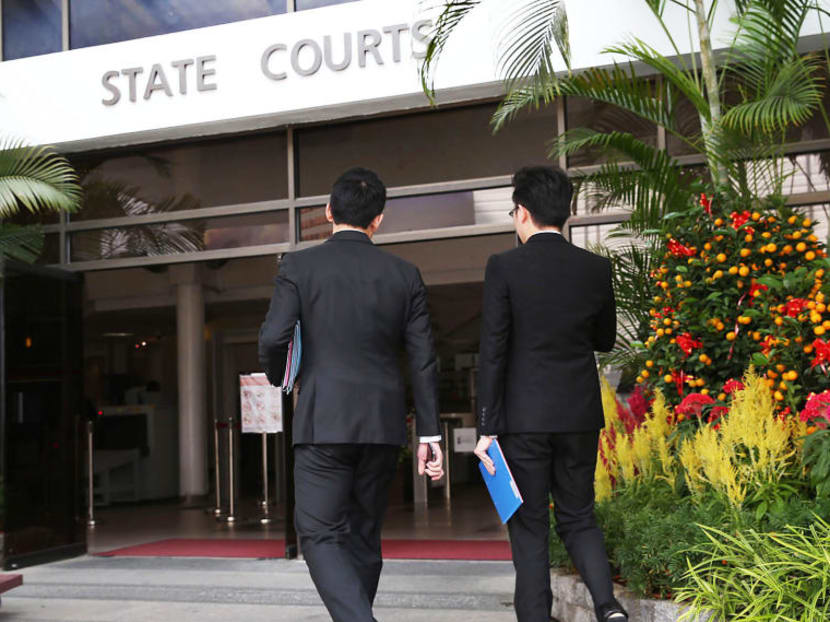Lawyers say proposed new training regime could raise competency, but might not address shortage of training contracts
SINGAPORE — While lawyers acknowledged that the proposed revamp of the legal training regime could raise the quality of both practising and non-practising lawyers, they were divided on whether the changes would address the shortage of training contracts amid a glut of lawyers.

Some lawyers feel that the more stringent exam and longer duration of the practice training contract could improve the competency of aspiring lawyers, as well as provide them with sound fundamentals before they enter the workforce proper.
SINGAPORE — While lawyers acknowledged that the proposed revamp of the legal training regime could raise the quality of both practising and non-practising lawyers, they were divided on whether the changes would address the shortage of training contracts amid a glut of lawyers.
On Thursday (Aug 30), the Committee for the Professional Training of Lawyers published its report of recommendations to revamp the professional training regime for lawyers in a bid to increase the quality and competency of the legal fraternity.
They include making Part B of the Singapore Bar Examinations more rigorous, as well as removing the practice training contract as a pre-condition to be called to the Bar.
Instead, the committee proposed that aspiring practising lawyers complete the practice training contract after being admitted to the Bar, with the duration of the contract to be extended from six months to a year.
Criminal lawyer Diana Ngiam, 30, said that the more stringent exam and longer duration of the practice training contract could improve the competency of aspiring lawyers, as well as provide them with sound fundamentals before they enter the workforce proper.
“But it still depends on the training provided by the law firms because the type and rigour of the training could make a huge difference,” said Ms Ngiam, who works at law firm Quahe Woo and Palmer LLC.
Mr Gregory Vijayendran, President of The Law Society of Singapore, said that extending the duration of the practice training contract will allow aspiring lawyers to learn before they start work, rather than on the job. This will allow them “to hit the ground running” once they are qualified to practise, bringing in more value-add to their law firms.
Mr Vijayendren, who also sits on the committee and is a partner at Rajah & Tan Singapore LLP, noted that the proposed changes could also address the shortage of practice training contracts amid a glut of lawyers.
He added: “Removing the training contract as a pre-condition could ease the problem, as only those committed to practising law in the long run would take up such contracts. These would be the stayers who will hopefully take a long term view of their practice journey.”
Responding to media queries, a Ministry of Law (MinLaw) spokesperson said that of those who were called to the Bar last year, one in five did not go on to practise law. About 690 law graduates – both overseas and local – enter the job market each year, and more than 90 per cent secured training contracts in 2017.
The MinLaw spokesperson said that the new regime would benefit law graduates who do not intend to practise law as they can be called to the Bar without doing a training contract.
“This may also help free up training spaces for those who do want to practise law,” added the spokesperson.
However, Mr Adzfar Alami, 30, a corporate lawyer at Rajah & Tann Singapore LLP, said that competition for practice training contracts “could still be intense as not all fresh law graduates are absolutely certain of the career path that they intend to pursue”.
He added: “Starting with a training contract keeps as many options as possible open for them, as one can decide to go in-house subsequently if they feel that private practice is not suitable for them.
“The benefit of having the most number of options available could be a key factor for training contracts to remain highly sought after.”
Senior Counsel Thio Shen Yi of TSMP Law Corporation noted that some law graduates who prefer to be in-house counsel do not want to do the Bar exam as they are reluctant to complete the practice training contract.
Removing the pre-condition would encourage such individuals to be admitted to the Bar, which could boost their employability given that companies perceive such individuals to be more competent.
An in-house counsel in his 30s, who works in a major oil firm and declined to be named, agreed that firms tend to favour someone who has been called to the Bar.
“They see admission to the Bar as a benchmark that a good lawyer must meet… Because it means the person understands the practical aspects of legal practice,” said the counsel, who is qualified to practise.
“That might not necessarily be the case as a person not called to the Bar might be equally brilliant. But this is the sad reality of the hiring process.”
Sign up for TODAY's WhatsApp service. Click here:






